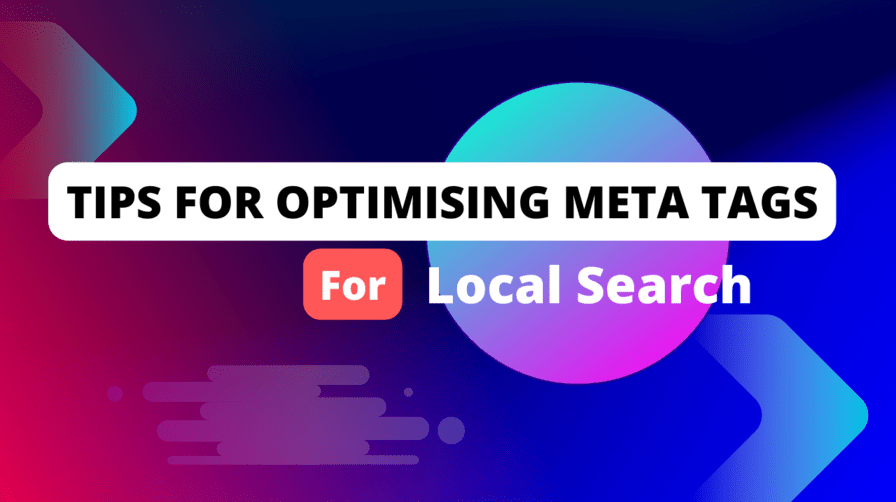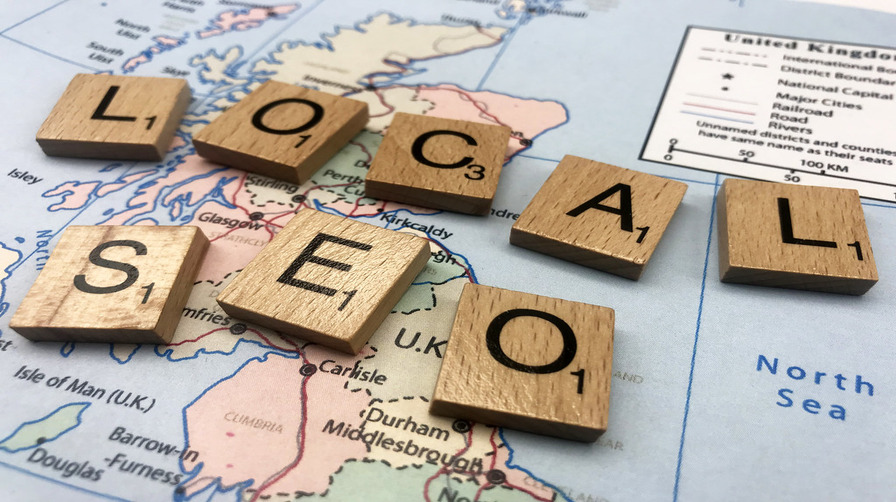Tips for Optimising Meta Tags for Local Searches
You might already know that meta tags play a crucial role in improving your website’s visibility in search results. But, optimising meta tags for local searches requires a slightly different approach than traditional SEO techniques. To effectively target local audiences, you need to ensure your meta tags contain relevant, localised information that appeals to your regional audience. In this article, I will provide you with a comprehensive guide to optimising meta tags for local searches, exploring effective strategies and best practices to increase your site’s visibility and attract a regional audience. Key Takeaways Meta tags play a crucial role in attracting local search traffic Conducting local keyword research helps identify relevant terms to enhance meta tag optimisation efforts Compelling meta titles and descriptions can lead to higher click-through rates and improved search visibility Localising content in meta tags can improve audience engagement and relevance Regularly monitoring and adjusting meta tag optimisation efforts is essential for long-term success Understanding Meta Tags and Local SEO Meta tags are elements that provide information about the content on a webpage. Meta tags for local SEO are specifically designed to attract local search traffic to your website. There are different types of meta tags, but the most relevant ones for local search engine optimisation are the title tag, meta description, and meta keywords. The title tag appears on the search engine results page (SERP) as the clickable headline, while the meta description is a brief summary of your page’s content. The meta keywords tag can provide context for your page’s keywords and phrases, but it is not as significant as it used to be. Optimising your meta tags for local search visibility is crucial for attracting regional traffic to your website. A study completed by Rocket Clicks showed a 71.4% increase in clicks by optimisng the meta tags and description. Without proper meta tag optimisation, your website may not show up as high on the results page for local searches. In the following sections, I will share effective on page techniques for optimising your meta tags to enhance your site’s visibility in local searches. Conducting Local Keyword Research Conducting keyword research is essential to optimise meta tags for local searches. It involves identifying relevant terms that people in your target region use to search for products or services. A useful approach to conducting local keyword research is to consider the language used in your target region. Think about the terms that are commonly used in that particular area to describe your products or services. Another effective method is to leverage online tools such as Google Keyword Planner, SEMrush, and Ahrefs. These tools provide valuable insights into keyword search volume, competition level, and related terms. Once you have a list of relevant keywords, you can use them to optimise your meta tags for local search engine optimisation. Use them into your meta titles, descriptions, and content to improve your visibility in local searches. Crafting Compelling Meta Titles for Local Searches The meta title is an important aspect of meta tag optimisation, influencing click-through rates and search visibility. Creating attention-grabbing meta titles can enhance your website’s performance in local searches and improve your site’s ability to attract local search users. Here are some of my top tips for optimising your meta titles: Include local keywords: Ensure that your meta title includes region-specific keywords and phrases. Keep it concise: Limit your meta title to 60 characters or less to ensure it’s fully displayed in search results. Highlight unique selling points: Highlight what makes your business unique and relevant to local search users. Use action-oriented language: Incorporate strong action verbs and enticing language to encourage clicks. Avoid duplication: Avoid duplicating your website’s page title as your meta title. By following these tips, your website’s meta titles will stand out in local search results and encourage local search users to click through to your site. Optimising Meta Descriptions for Local Search Traffic Meta descriptions are short descriptions that appear below the meta title in search engine results. These descriptions play an important role in attracting search users to click on your website. In 3 to 6 months, Socialee boosted website ranking on Google by using location keywords and user-focused content, including in the meta. To optimise meta descriptions for local searches, it’s essential to include relevant local keywords in the description. Make sure your descriptions are also concise, clear, and accurately reflect the content on the page. Another strategy to optimise meta descriptions for local searches is to include location-specific information in your descriptions. This information could include the name of the city or town, nearby landmarks, and other geographically relevant details. Remember that meta descriptions should be unique for each page on your website. Avoid using duplicate descriptions, as this can harm your SEO efforts. Optimising meta descriptions for local search traffic requires incorporating relevant local keywords, including location-specific details. By following these best practices, you can enhance your website’s visibility in local search results and attract more targeted traffic to your website. Structuring URL Slugs for Local Relevance URL slugs play a crucial role in optimising your website for local searches. By structuring your URL slugs with local relevance in mind, you can improve the chances of attracting a regional audience and boosting search visibility. When crafting your URL slugs, make sure to include relevant local keywords that accurately reflect the content on your page. Keep your slugs short, descriptive, and easy to read, ensuring they accurately represent the content on your page. Another important consideration is to use hyphens to separate words in your URL slug. This makes it easier for search engines to read your URL and interpret its content, further enhancing your site’s visibility in local SERPs. Remember to also avoid using unnecessary parameters or variables in your URL slugs, and keep them as clean and simple as possible. By employing these URL slug optimisation tips as part of your broader meta tag optimisation strategy, you can enhance your site’s local SEO and attract


